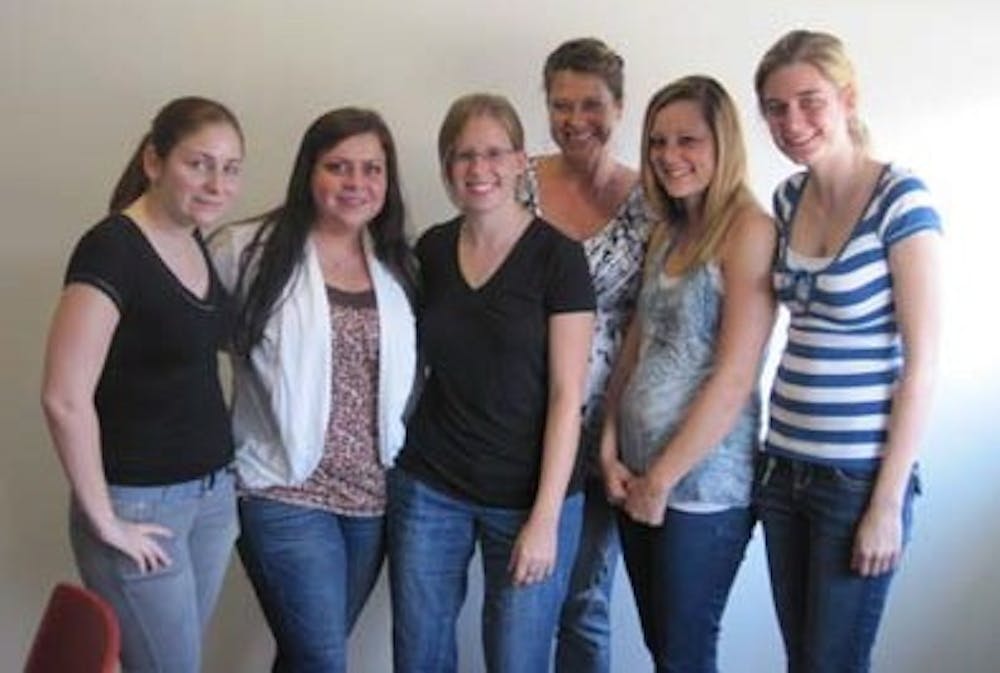Human trafficking affects nearly 2 million people around the world each year. Surprisingly enough, 50 thousand of these incidents occur within the United States.
After realizing these awful statistics, five social work majors decided to start the Eliminate Slavery and Trafficking Of People club (E-Stop). The club will help raise awareness about human trafficking. They also have set out to raise money for the victims of the crime.
Sierra Reigle, co-founder of the club and a senior at Shippensburg University, learned about human and sex trafficking from a class project. Reigle and the other group members were given the task of assessing sex trafficking in the communities of Dauphin and York Counties. After conducting the survey, she realized how little people know about human trafficking.
Reigle is the evaluator for E-Stop. It is her job to see how many people attend each meeting. She makes surveys to hand out to the attendees in order to evaluate the effectiveness of the club. She also assists in brainstorming ideas to improve the club and its membership.
Jaimie Serowsky, another co-founder of E-Stop and senior at Shippensburg University, explained how her interest in human trafficking significantly increased while doing research on the topic. At first, Serowsky had focused her attention on sex trafficking alone but she soon discovered how the overall aspect of human trafficking was just as prevalent and wide spread.
Serowsky serves as one of two publicists for E-Stop. She is in charge of spreading the word about the club as well as developing ideas to promote the club’s activities. Serowsky also contributes research about human trafficking at the club meetings.
Serowsky and Reigle have several goals they hope to achieve by starting E-Stop with the other co-founders. They hope, overall, that the club will help people become more aware of human and sex trafficking so that they can have a chance to prevent it if the situation arises.
They also plan to raise money to support the victims of human trafficking. Right now, the group is conducting a change collection. All of the change donations go to the Truth for Women Center in Bethlehem, Pa. The center helps care for and counsel victims of human trafficking.
Serowsky explained how E-Stop hopes to plan hands-on and interesting activities for its new members. The club has already planned to check out which various popular products are made by slave labor.
free2workReigle explained that at their first meeting, they invited a guest speaker to give the attendees an idea about what human trafficking is. She said the speaker gave real world examples of people who have been trafficked. Reigle was able to hand out a survey to those who attended the meeting asking simple questions about their previous knowledge of the topic.
Reigle and Serowsky, as well as the other founding members of the club, have encountered a few challenges since starting E-Stop. When attempting to advertise for their first meeting, the members of E-Stop realized that the application would take longer than they thought to get approved. This factor inhibited the group from posting flyers since they could not get them approved without being recognized as an official club.
The group overcame this obstacle by using word of mouth to let people know about the first meeting. They succeeded in recruiting 24 people to attend the meeting. Although most of the people were social work majors, Reigle said her and her co-founders were satisfied with the turnout.
“In the future, we hope that we can get a more diverse group of students to attend the meetings and join our club but since we weren’t able to advertise as much as we would have liked, we were relieved when so many people showed up,” Reigle said.
Serowsky also explained the learning experiences that came with setting up their first meeting. She said that next time they will be more prepared with the technology aspect as well as giving themselves more time to set up for the presenter. “It was definitely a learning experience.
Next time we just need to give ourselves more time between our class and the meeting to set up,” Serowsky said. Another future obstacle that the club leaders are going to have to deal with is that most of them will be going into the field during the spring semester.
Because of this, they are going to have to learn to balance their internships and fieldwork while dealing with the aspects of E-Stop as well.
E-Stop’s next activity they are planning is to put an informational table about human trafficking outside of the Ezra Lehman Library on campus. They will be there to inform people about the prevalence of human trafficking as well as to recruit members.
They have also developed a bar code stamp that says “For Sale” to represent how people are sold as slaves. According to freetheslaves.net the average cost of a human slave sold in the world is $90. They hope that by stamping people’s wrists with the phrase, they can help raise awareness about human trafficking.
Overall, E-Stop still has their work cut out for them to get the club fully on its feet. Reigle and Serowsky are both determined to not only raise awareness, but to recruit passionate members who are willing to help fundraise for those people who have been victims of human trafficking.


The Slate welcomes thoughtful discussion on all of our stories, but please keep comments civil and on-topic. Read our full guidelines here.